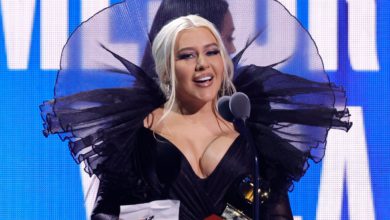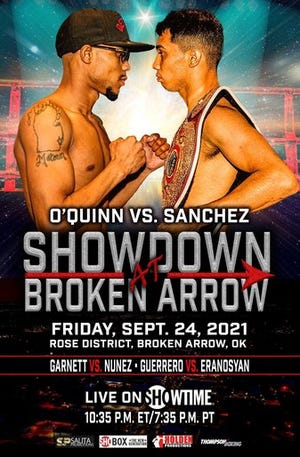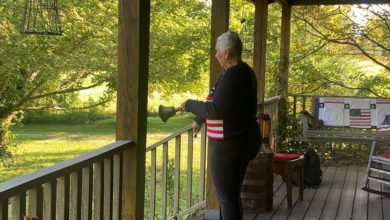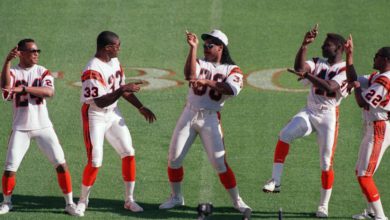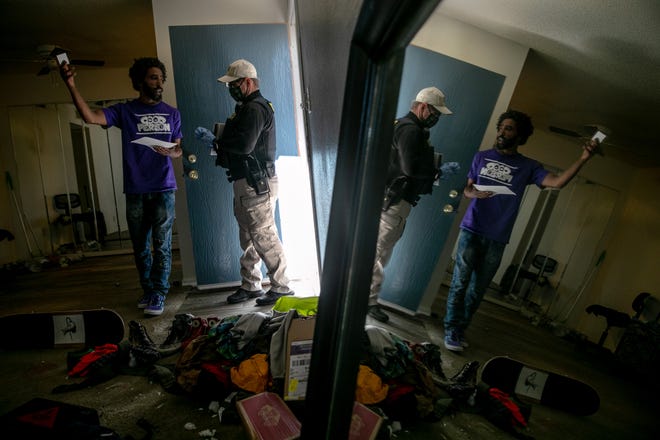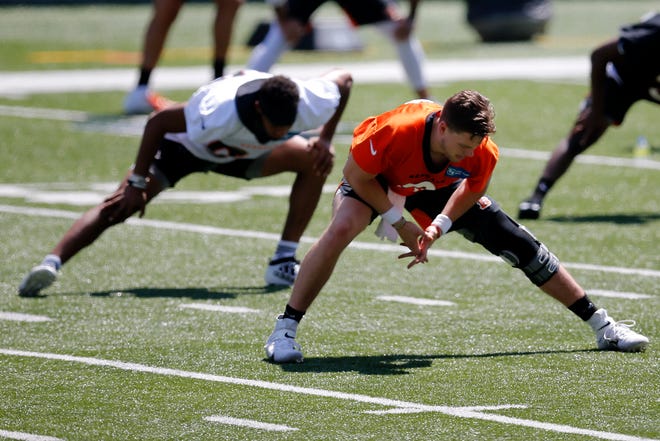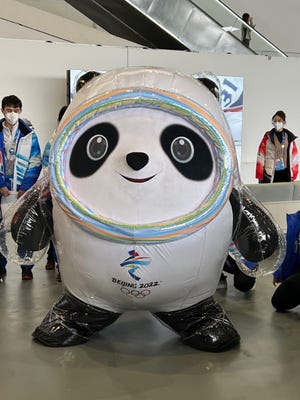
BEIJING – The panda wasn't taking questions.
In an interview with reporters here Saturday the official mascot of the Beijing Winter Olympics – a toy panda named Bing Dwen Dwen – dodged tough queries about the availability of fresh bamboo, whether giant pandas are in fact related to bears or raccoons and other hot topics inside Beijing's COVID-secure Olympic bubble.
(Also, because pandas don't talk.)
But that's OK because in stores and online China's consumers are doing the talking for Bing Dwen Dwen by purchasing collectible stuffed-animal versions of the mascot whose name translates into English as a combination of "ice" and "chubby" in droves, even though according to the Chinese zodiac 2022 is the Year of the Tiger.
"It's so lovely, and really cute, and oh, I don't know, because it's a panda," gushed Wu Rourou, as she explained in a text message to USA TODAY why she stood in line for 11 hours overnight in sub-zero temperatures in Nanjing, in southern China, for a chance to buy Games-related souvenirs of the bear native to mountain ranges in central China.

Since the opening ceremony on Feb. 4, Bing Dwen Dwen toys, stickers, key chains, porcelain and other trinkets have flown off shelves and the mascot's likeness has appeared on social media on everything from homemade cakes to digital memes. Factories have had to ramp up manufacturing to meet consumer demand.
In many Olympic sites over the last few weeks, participants inside the bubble have stood in long lines to buy Bing Dwen Dwen paraphernalia, much of which is now sold out.
FOLLOW THE CHASE FOR GOLD: Never miss a moment with our Olympic newsletter
"My grandson really wants to get one, so I came here hoping I could achieve that for him," said a woman who only wanted to be identified as Ms. Yang, as she stood in a lengthy line outside a licensed Olympics store in central Beijing late Friday.
"I heard from my friends already that nothing’s left, but we’ll see," she said.
Falling for Bing Dwen Dwen
Neither Bing Dwen Dwen nor the panda's handlers directly addressed reporters' questions Saturday about why a toy panda cub, dressed in a suit of ice, has so fervently captured the hearts and imaginations of athletes and Olympic fans inside and outside the bubble. Over the course of about an hour, Bing Dwen Dwen mostly hopped from one panda foot to the other as one of its designers explained by video link that the mascot was created to "resemble an astronaut" and reference advanced technologies.
"Thank you for your love for Bing Dwen Dwen," the designer said on the panda's behalf. On a prior visit to the Games' main press center, Bing Dwen Dwen got stuck in a door.
Inside one official Beijing 2022 store in Wangfujing, a well-known shopping street in Beijing, the Bank of China and China CITIC Bank were offering customers a free Bing Dwen Dwen key chain if they applied for a credit card.
The delivery time for the key chain was approximately two weeks.
TEXT WITH US AT BEIJING OLYMPICS: Subscribe to texts, where we’ll be your official guide to the Games
Gong Yuan, an accountant from Beijing who was in the same line as Ms. Yang, said he thought some of the craze around the bear had resulted from Internet videos featuring people talking about how difficult it was proving to buy the mascot.
"All this talk has made people like, who don't really care, care a lot more," he said.
Gong added that Shuey Rhon Rhon, Beijing's other mascot for the Paralympics, which Olympic organizers describe as a "Chinese lantern child" whose glowing red heart symbolizes "friendship, warmth, courage and perseverance," was "less cute."
Wu, the woman who camped overnight for 11 hours in Nanjing, said she was so excited at the prospect of buying Bing Dwen Dwen that when she finally got into the store she forgot all about seeing if there were any Shuey Rhon Rhon products available.
"That's too bad," she said, then added, "but it's completely fine because I will put Bing Dwen Dwen on my desk at home and I will always be happy to look at it."
The last time Beijing hosted the Olympics – the 2008 Summer Games – organizers were arguably more ambitious with their Olympic marketing and served up five, not two, mascots. They were known as the "Fuwa," meaning "good luck dolls." There was a panda, a fish, a Tibetan antelope, a swallow and the Olympic flame. Colored to match one of the five Olympic rings, their names, when put together, spelled out "Bei Jing Huan Ying Ni" – "Beijing Welcomes You."
'I am one of the lucky ones'
The 2008 mascots proved a massive hit and were an invitation to China's army of counterfeiters. A crackdown seized 30,000 fake Olympic products in Beijing alone in the first half of 2007 and the government eventually enlisted the public's help to catch people peddling fakes. An informers' hotline was established and rewards were given.
Standing in a line overnight for Bing Dwen Dwen merchandise from an official Beijing store is as close as most Chinese can get to 2022’s strictly segregated Games, with zero tickets on sale for most members of the public thanks to tight coronavirus rules.

In 2008, even if fans lacked tickets, they could approach the edge of the Olympic sites and take photos of the Bird's Nest and Water Cube stadiums, and enjoy the passion of the "Olympic madmen" – ten zealous fans who gathered each day near the Water Cube alongside the motorcycles they rode across China for several years ahead of the event to spread their Olympic message. Their motorcycles were plastered with Fuwa.
No official estimates have yet been released about many Bing Dwen Dwens have been sold, though China's Lunar New Year holiday, or Spring Festival, that started on Jan. 31 and lasted for a week – and kicked off the country's unofficial peak shopping season –coincided with the start of the Olympic opening ceremony.
Chinese state media reported that factories were now making several thousand more products daily. There have been few reports of hawkers trying to sell counterfeit versions, though Reuters said it encountered one scalper in Wangfujing who was selling Bing Dwen Dwen dolls for 1,000 renminbi ($160), China's currency. The largest ones are priced at $30.
"It took a long time in line, believe me, I guess you could say I am one of the lucky ones," said Gary Mao, explaining in a Friday night TV appearance on China Global Television Network, which is affiliated with China's Communist Party, how he was finally able to buy a Bing Dwen Dwen doll.
Mao appeared on the show by video link from inside the Olympic bubble. He was identified as the CEO of Gif Ventures, whose website says it "invests, incubates and advises on advanced technology projects."
He Jing, a lawyer who appeared on the same TV news program with Mao, said that "the charm and the magic of winter sports was really captured in the opening ceremony for Chinese consumers," offering a theory for the mascot's popularity.
"Another thing is better (intellectual property) protection" he said. "I've been checking and there are almost no counterfeits detected at all."
Contributing: Calum MacLeod
Source link



